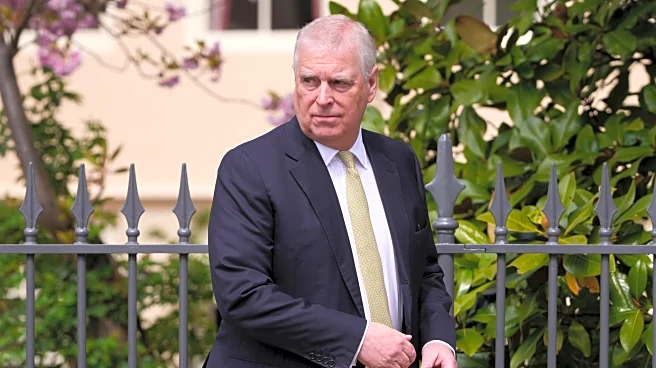Rapid Read • 9 min read
A group of prominent figures from the arts and entertainment industries, including Joan Baez, Graham Nash, and Sean Ono Lennon, have signed an open letter highlighting the increasing threat of nuclear weapons. The letter, published in The New York Times and Variety, is titled 'No More Hiroshimas, No More Nagasakis: Cultural Leaders for a Future Without Nuclear Weapons.' It warns of the heightened risk of nuclear weapon use, either by accident or intention, due to ongoing global conflicts and the expiration of the last remaining treaty limiting nuclear arsenals. The signatories, which also include actors and filmmakers like Julianne Moore and James Cameron, pledge to use their influence to raise awareness about nuclear dangers and advocate for a future without such weapons. The letter is endorsed by the governors of Hiroshima and Nagasaki and Ernest J. Moniz, former U.S. Secretary of Energy.
AD
The open letter underscores the urgent need for renewed attention to nuclear disarmament amid escalating global tensions. With the expiration of key treaties and the advent of new technologies, the risk of nuclear conflict is perceived to be at its highest since the Cold War. The involvement of cultural leaders in this advocacy highlights the role of the arts in shaping public discourse and policy. Their collective voice aims to galvanize public and political action towards reducing nuclear arsenals and preventing potential catastrophes. This initiative could influence policymakers and the general public, potentially leading to increased support for disarmament efforts and international cooperation.
The signatories of the letter are expected to continue their advocacy through various platforms, leveraging their public influence to keep the issue of nuclear disarmament in the spotlight. This could involve public campaigns, collaborations with disarmament organizations, and participation in international forums. The expiration of the current nuclear treaty in six months presents a critical window for diplomatic efforts to negotiate new agreements. The cultural leaders' involvement may also inspire other sectors to join the call for a nuclear-free future, potentially leading to broader coalitions advocating for policy change.
The letter not only addresses the immediate risks associated with nuclear weapons but also touches on the ethical and moral responsibilities of global leaders and citizens. It challenges the notion that nuclear deterrence ensures safety, advocating instead for a paradigm shift towards peace and security without reliance on nuclear arsenals. This movement could foster a cultural shift in how societies perceive nuclear weapons, emphasizing the importance of creative and diplomatic solutions over military might.
AD
More Stories You Might Enjoy













